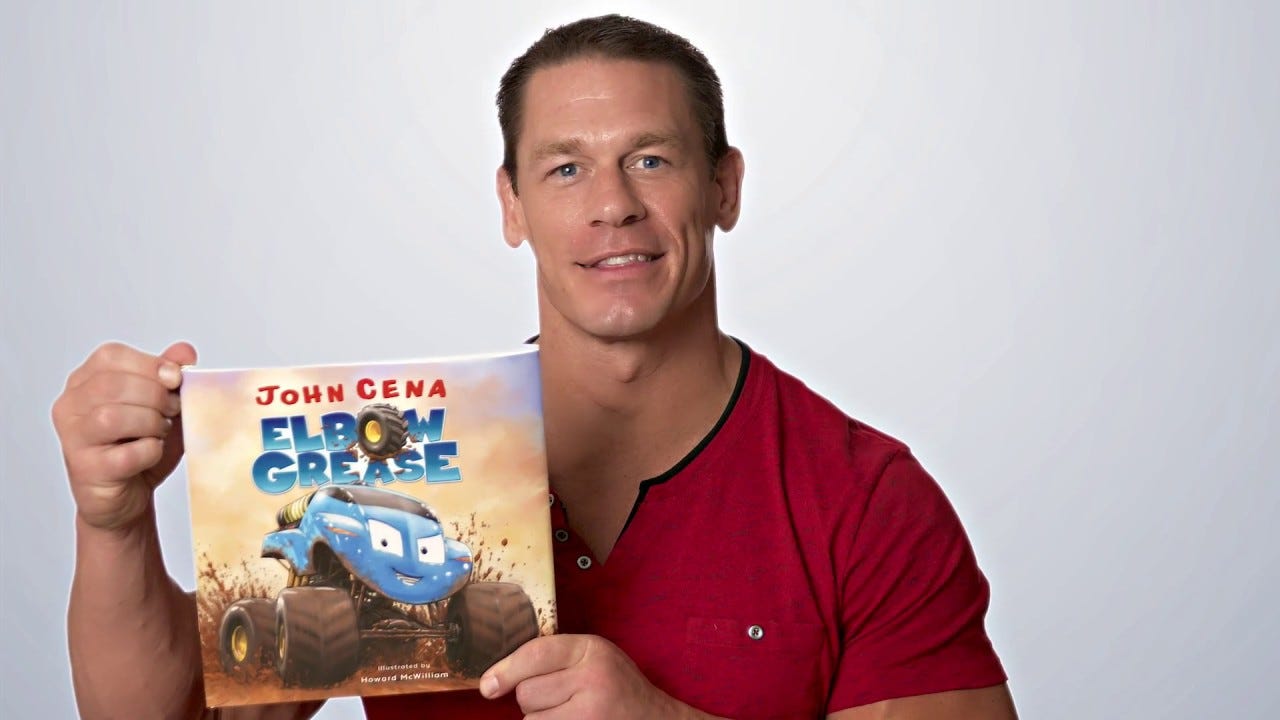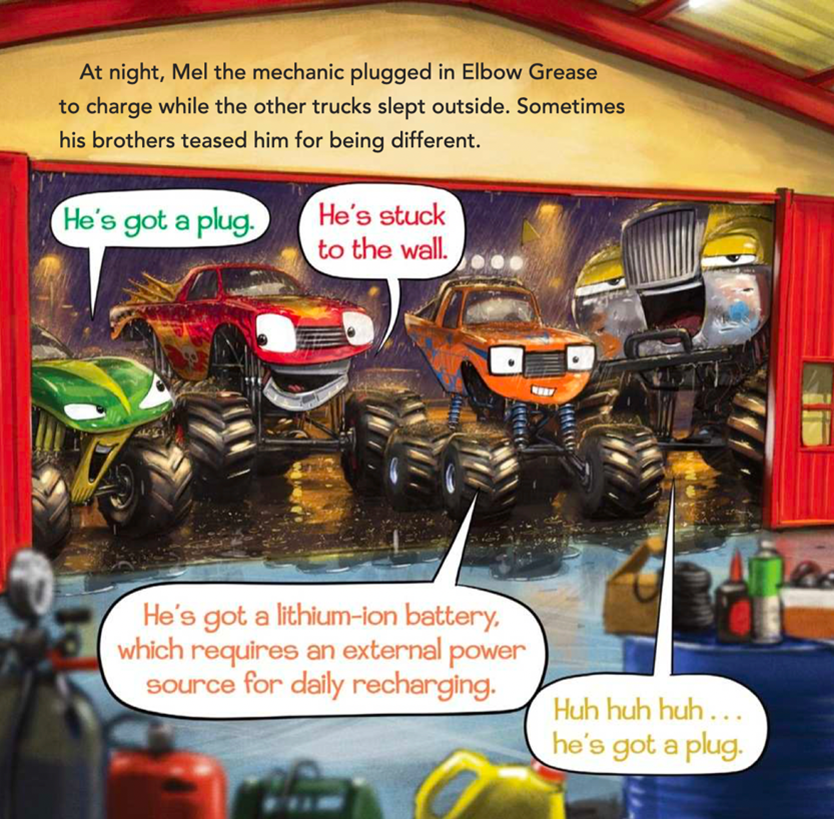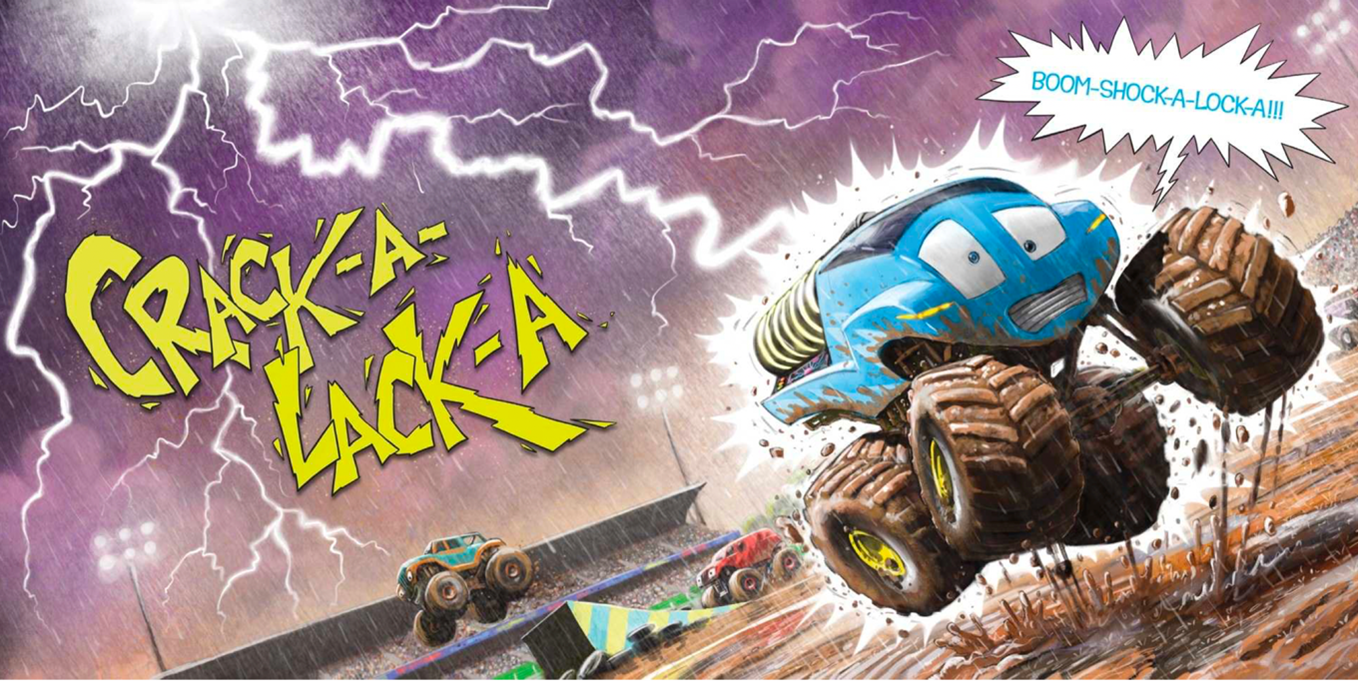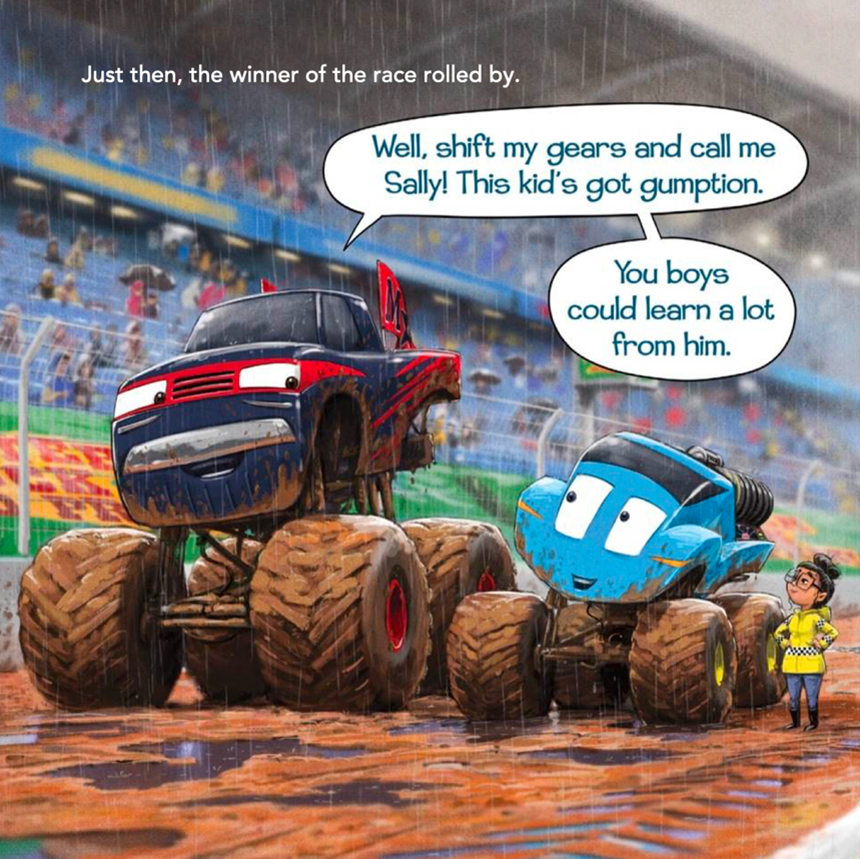This is the winner of the 2022 Book Review Contest, by Carina! Congratulations to her and thanks to all the entrants. The reviews from the two runners-up will be posted this month and shared via the Weekly Digest email. I’d also like to invite more people to get involved in our subscriber-only book clubs, which are a lot of fun. I’ve made yesterday’s most recent post public so that people who don’t yet subscribe can see what we’re up to in that space.
My son loves monster trucks, and I want him to love reading. When I happened upon Elbow Grease, it seemed like an easy win.
I had never heard of the author, John Cena, but customer reviews alerted me to his celebrity status. Apparently, he is a professional wrestler with an expansive personal brand. He acts, raps, and writes. While unfamiliar with those projects, I did recognize Cena from a popular animated GIF where the camera zooms in on his baffled expression. We’ve all been there; this did not influence my decision one way or the other.
Some customers warned that Elbow Grease is too advanced for its target audience, truck-obsessed preschoolers. One reviewer wrote, “My grandson loved the pictures, but I made up my own story as we went through the book.”
I bought it anyway, confident that my own son would fare better than the reviewer’s simple grandchild. After all, I was an early reader, and I’ve recently been persuaded that intelligence is heritable.
Sadly, the review turned out to be correct. The plot is confusing, and the dialogue is sprinkled with big words. Even setting aside the reading level, Elbow Grease suffers from foundational incoherence: Cena tells children to work hard and never give up, while the story conveys the opposite lesson—that success is a function of innate ability and random luck.
Smart truck, dumb truck
The first sign of trouble is the cast of characters. Elbow Grease is a scrappy little monster truck with four brothers who serve as the book’s antagonists. They mock his small size and hybrid engine, and they don’t believe he can win a race.
That’s all fine. Many children’s books feature shit-talking big kids. But for reasons unrelated to the plot, one brother is smart and another is stupid. These intellectual differences are meant to be humorous.
Pinball, the “smart” monster truck, has nerdy glasses and an overbite. The gag is that he uses big words.
This joke makes no sense to a three-year-old. I could read the dialogue in a silly voice to make my son giggle, but I refuse on principle. I’m not going to teach him that it’s uncool to have a strong vocabulary.1
The dumb truck, Tank, is the automotive version of a beefy jock with a tiny brain. Throughout the book, he struggles to form coherent thoughts, and we’re meant to laugh at his efforts. Even Mel—the female, BIPOC mechanic—teases him.
Why is Pinball so much smarter than Tank? It’s never explained. Since the book’s theme is hard work and “gumption,” you’d think Cena would show Pinball hitting the books while Tank gets baked on gas fumes.
But no. The only explanation is “His brother Pinball was smarter.” [my emphasis] The implication is that Pinball’s intelligence is innate. This was an early warning that Elbow Grease sends mixed messages.
Effort or luck?
Elbow Grease ignores his brothers’ taunts and enters the race anyway. To Cena’s credit, what happens next is realistic. Elbow Grease doesn’t zoom to victory powered by sheer force of will. His battery dies, and he stalls out in the middle of the track.
That’s life, kids. Hard work is great, but we all have limits. As a child, I wanted to be a famous singer like Gloria Estefan, but nature gave me a voice Simon Cowell would laugh off the stage.
I’m glad I accepted reality, just like Elbow Grease should accept that he wasn’t built for winning races. (He was built for the rare consumer who loves monster trucks but also cares about climate change.) His engine can’t keep up, and no amount of gumption will change the facts.
But then a miracle happens: Elbow Grease gets struck by lightning.
The lightning jolts his battery back to life, and he finishes the race, cruising past bigger trucks that wrecked in the mud.
Everyone gushes over his stunning performance. “Most trucks didn't even finish!” says Mel, beaming with pride. Yeah, because most trucks didn’t get ridiculously lucky.
The probability of any particular vehicle getting struck by lightning is difficult to determine, but the CDC reports the chances of a person being struck in a given year are less than one in one million.
It’s even less likely that a lightning strike would have a positive impact on a truck’s performance. According to the National Weather Service, “damage to the antenna, electrical system, rear windshield, and tires is common.”
The probability of a lightning strike hitting at the perfect time, and charging a vehicle’s battery, is essentially zero. Elbow Grease won the lottery, and everyone praises his commitment to the grind.
Obviously, a well-timed lightning strike doesn’t prove hard work pays off. At best, it demonstrates that if you show up, some freak event might occur in your favor.
And sure, some people get lucky. Sometimes the fast speedskaters collide and the slow one glides to victory. Or the longshot candidate becomes the frontrunner when his opponent gets a DUI. These things happen.
But 99.9% of the time, the heavens will not open up and blast your battery with a game-changing power surge. When you crap out early, you’re just done.
The ‘Rudy’ of monster trucks
The book concludes with Elbow Grease and his brothers training for future races. It’s a cute scene, but any mechanic could tell you it’s not going to work. Practice won’t turn our puny protagonist into a contender.
Small trucks don’t grow into big trucks, and everyone with a laptop or smartphone knows batteries don’t get better with use.2 Elbow Grease might improve his driving skills through repetition, but he didn’t have enough juice to finish the race without divine intervention.
Technically, a second storm could disrupt a future race in his favor, wiping out every single truck except for him. But the most likely outcome is that Elbow Grease will keep losing until he’s old and rusty.
I want my son to work hard, but I also want him to be realistic. If he’s short, I’m not going to tell him to aim for the NBA. If he inherits my singing voice, I’ll suggest a musical instrument. No good comes from plugging away at the impossible.
So I had mixed feelings when I closed the book and my son said, “Again?”
We read it two more times, and Elbow Grease entered the rotation of regular bedtime books. My son requests it often, and by now I can recite most of the dialogue from memory.
So it’s another win for John Cena, I suppose. Elbow Grease may be over your child’s head, with a message that doesn’t fit the story, but ultimately the grandma on Amazon was right. Kids love the pictures.
I want him to grow up to be a prolific Substack commenter like Mommy.
I’m typing this on a 2020 MacBook that needs to be plugged in after 45 minutes.









Thanks for the kind comments everyone. This was a lot of fun. ❤️
“confident that my own son would fare better than the reviewer’s simple grandchild” -- this line sent me